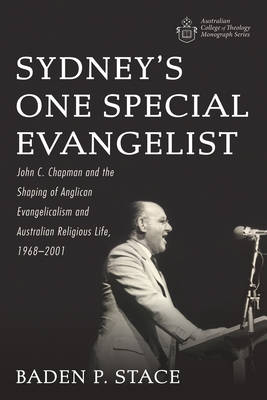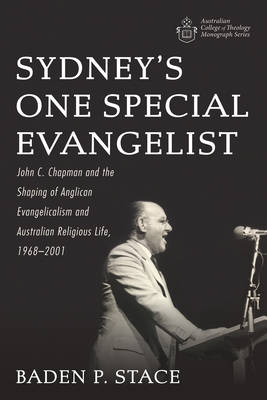
- Afhalen na 1 uur in een winkel met voorraad
- Gratis thuislevering in België vanaf € 30
- Ruim aanbod met 7 miljoen producten
- Afhalen na 1 uur in een winkel met voorraad
- Gratis thuislevering in België vanaf € 30
- Ruim aanbod met 7 miljoen producten
Zoeken
Omschrijving
This landmark work is the first academic study of a figure who played a defining role in the Australian evangelical movement of the late twentieth century--the inimitable preacher, evangelist, and churchman John C. Chapman. The study situates Chapman's career within the secularizing Western cultures of the post-1960s--a period bringing momentous changes to the social and religious fabric of Western society. At the same time, global Evangelicalism was reviving, bringing vitality to large swathes in the Global South and a re-balancing in Western societies as conservative religious movements experienced growth and even renewal amidst wider secularizing trends. Against this backdrop the study explores the way in which, across a wide array of domestic and international fora, Chapman contended for the soteriological priority of the gospel in Christian life, mission, and thought. Accomplished via an absorbing blend of personal wit, impassioned oratory, innovative missiological strategy, and striking theological perception, the result was a stimulating history of public advocacy that sought a revival of confidence in Evangelicalism's message, and a constantly reforming vision of Evangelicalism's method. Such a legacy marks Chapman as a central figure within the generation of postwar leaders whose work has given Australian Evangelicalism its contemporary shape and dynamism.
Specificaties
Betrokkenen
- Auteur(s):
- Uitgeverij:
Inhoud
- Aantal bladzijden:
- 542
- Taal:
- Engels
- Reeks:
Eigenschappen
- Productcode (EAN):
- 9781666749090
- Verschijningsdatum:
- 4/08/2022
- Uitvoering:
- Hardcover
- Formaat:
- Genaaid
- Afmetingen:
- 152 mm x 229 mm
- Gewicht:
- 889 g

Alleen bij Standaard Boekhandel
+ 185 punten op je klantenkaart van Standaard Boekhandel
Beoordelingen
We publiceren alleen reviews die voldoen aan de voorwaarden voor reviews. Bekijk onze voorwaarden voor reviews.











